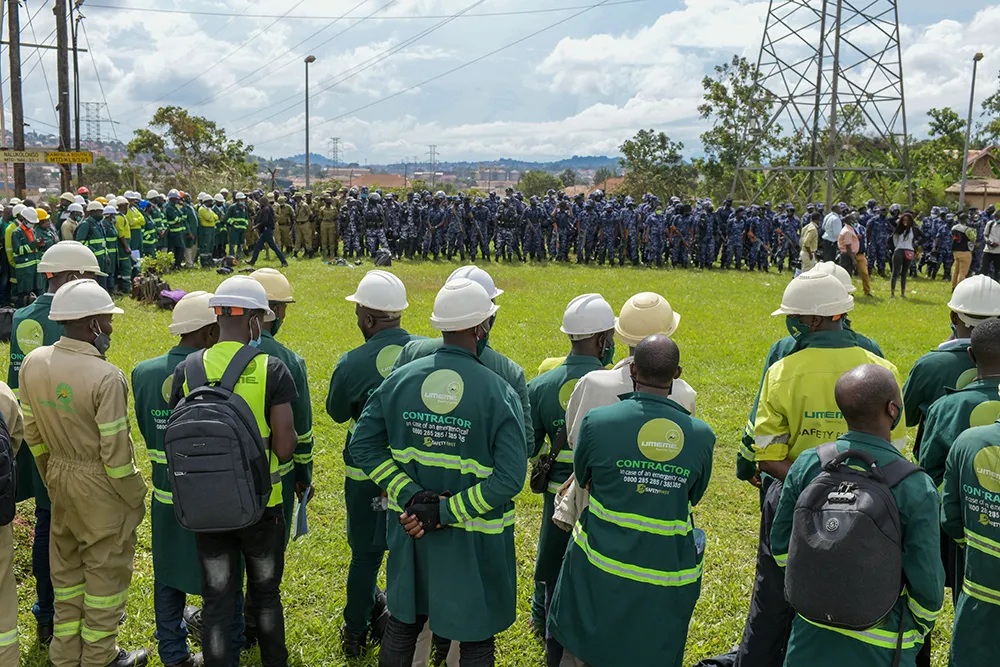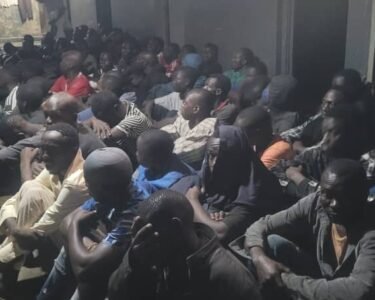At least 500 employees of Umeme, Uganda’s power distribution company, face job losses as the Uganda Electricity Distribution Company Limited (UEDCL) assumes control of power supply to end users on April 1.
Energy Minister Ruth Nankabirwa, in an interview with a local television station, stated that approximately 190 Umeme employees would be rendered redundant by March 31, when Umeme’s 20-year concession to distribute electricity in Uganda expires. However, an analysis of Umeme’s workforce structure and the one unveiled by UEDCL suggests that the number of affected employees could be significantly higher.
According to sources, most redundancies stem from a streamlined staff structure. UEDCL Managing Director Paul Mwesigwa acknowledged the downsizing, attributing it to technological advancements and efficiency measures approved by the government through the Electricity Regulatory Authority (ERA).
“The structure we are implementing was approved by the shareholder, the board, and ERA. It is designed for efficiency and leverages technology to ensure an optimal power supply,” Mwesigwa explained.
While Umeme’s workforce had grown to 3,200 employees—including 2,000 permanent staff—to manage an expanding customer base, UEDCL’s new structure accommodates only 1,500 employees. This implies that at least 500 positions have been eliminated, while the fate of 1,200 contract workers remains uncertain. Minister Nankabirwa defended the downsizing, citing the need to eliminate role duplication.
“To enhance efficiency, we had to remove redundant positions. Otherwise, the system would be inefficient,” she said.
Some Umeme employees have accused ERA of approving what they consider a flawed staffing structure, a claim ERA spokesperson Jeje Wandera dismissed as baseless.
“These claims do not warrant a response. A regulator overseeing a globally recognized sector cannot suddenly approve a structure that negatively impacts operations,” Wandera stated.
Sources indicate that Umeme’s structure allowed career growth through a hierarchical system of area managers and engineers. However, the UEDCL framework reportedly lacks similar provisions. Concerns have also been raised about the adequacy of staffing levels, particularly given that Umeme expanded its workforce to serve a growing customer base—rising from 280,000 connections at the start of its concession to 2.3 million today. Critics argue that UEDCL’s staffing model does not account for this growth, leading to understaffing in critical departments, including customer service.
“The call center has been allocated insufficient personnel. Similarly, frontline staff numbers are inadequate. Additionally, there is no provision for a digital manager to handle complaints received via online platforms like WhatsApp,” a source familiar with the structure disclosed.
Minister Nankabirwa sought to ease concerns, suggesting that some Umeme employees could be recalled when necessary.
“We will maintain a special list of affected staff so that they can be rehired when needed. We may also recommend them to contractors working within the network,” she assured.
Disgruntled Umeme employees have accused UEDCL and the Energy Ministry of reneging on promises made during the transition process. They referenced a statement by Mwesigwa to Parliament’s Committee on Commissions, Statutory Authorities, and State Enterprises (COSASE) in July 2023, in which he indicated that UEDCL would require at least 3,000 employees post-Umeme and that Umeme staff would be given hiring priority.
“Our business model requires a workforce of 3,010. Umeme has 2,502 employees, and we planned to engage all of them in our recruitment process,” Mwesigwa told MPs at the time.
In a widely publicized December interview, he reaffirmed this stance, stating that Umeme’s 2,500 employees, combined with UEDCL’s 515 staff, would nearly meet the required workforce. However, many now accuse him of backtracking on those assurances.
Additionally, concerns have been raised about how the recruitment process has been handled. Two separate dossiers, allegedly submitted to ERA and the Inspectorate of Government (IG), claim that bureaucratic inefficiencies and management rigidity have led to the exclusion of skilled personnel.
“UEDCL’s transition from Umeme is far from seamless. Over 400 experienced Umeme employees are being left out due to rigid hiring policies. This includes key industry experts whose departure could weaken UEDCL’s capacity,” one dossier stated.
Among those reportedly affected are industry specialists such as Allan Kamba (System Control and Primary Plant expert), Victoria Namubiru (a metering technology specialist who pioneered prepaid metering for high-voltage customers), and Abby Gwaivu (a seasoned distribution expert for industrial zones in Kampala).
Another concern is UEDCL’s hiring criteria, which allegedly disqualified engineers without degrees or those not yet registered with the Uganda Institution of Professional Engineers (UIPE). Some applicants were reportedly close to completing their degrees but were still excluded. Critics suggest that the process was designed to sideline experienced Umeme employees to reduce competition for existing UEDCL staff.
Furthermore, allegations have emerged that the number of positions Umeme staff could apply for was reduced from three to two. Mwesigwa defended the decision, saying it was based on Ministry of Public Service guidance.
“Initially, we considered allowing applications for three positions, but the ministry advised a limit of two per candidate,” he explained.
Some Umeme staff have urged ERA to intervene and review the hiring process, citing alleged bias in interview panels. They claim UEDCL had a disproportionate representation on the panel, disadvantaging Umeme employees. Mwesigwa, however, dismissed these concerns, noting that UEDCL-led panels ended up hiring more Umeme staff.
“A panel formed to interview department heads selected eight candidates—six from Umeme and only two from UEDCL. How does that indicate bias?” he questioned.
Despite these assurances, Umeme staff continue to press ERA and the IGG to halt what they describe as a flawed hiring process.
“ERA and the IGG must act swiftly to review the recruitment process and address the legitimate concerns raised,” the petition states.
ERA’s Wandera, however, said he had not seen any formal complaint.
“If there is a petition, the board will address it accordingly. Let’s wait for their decision,” he concluded.





